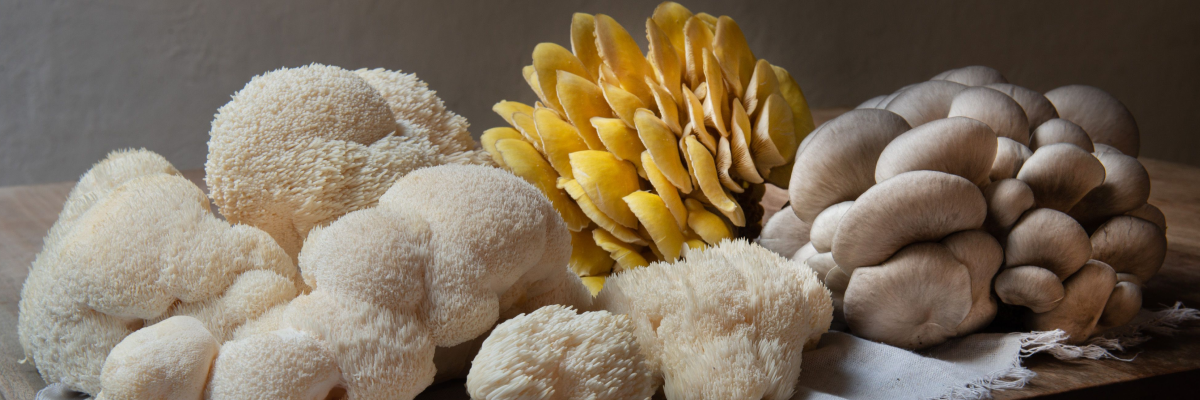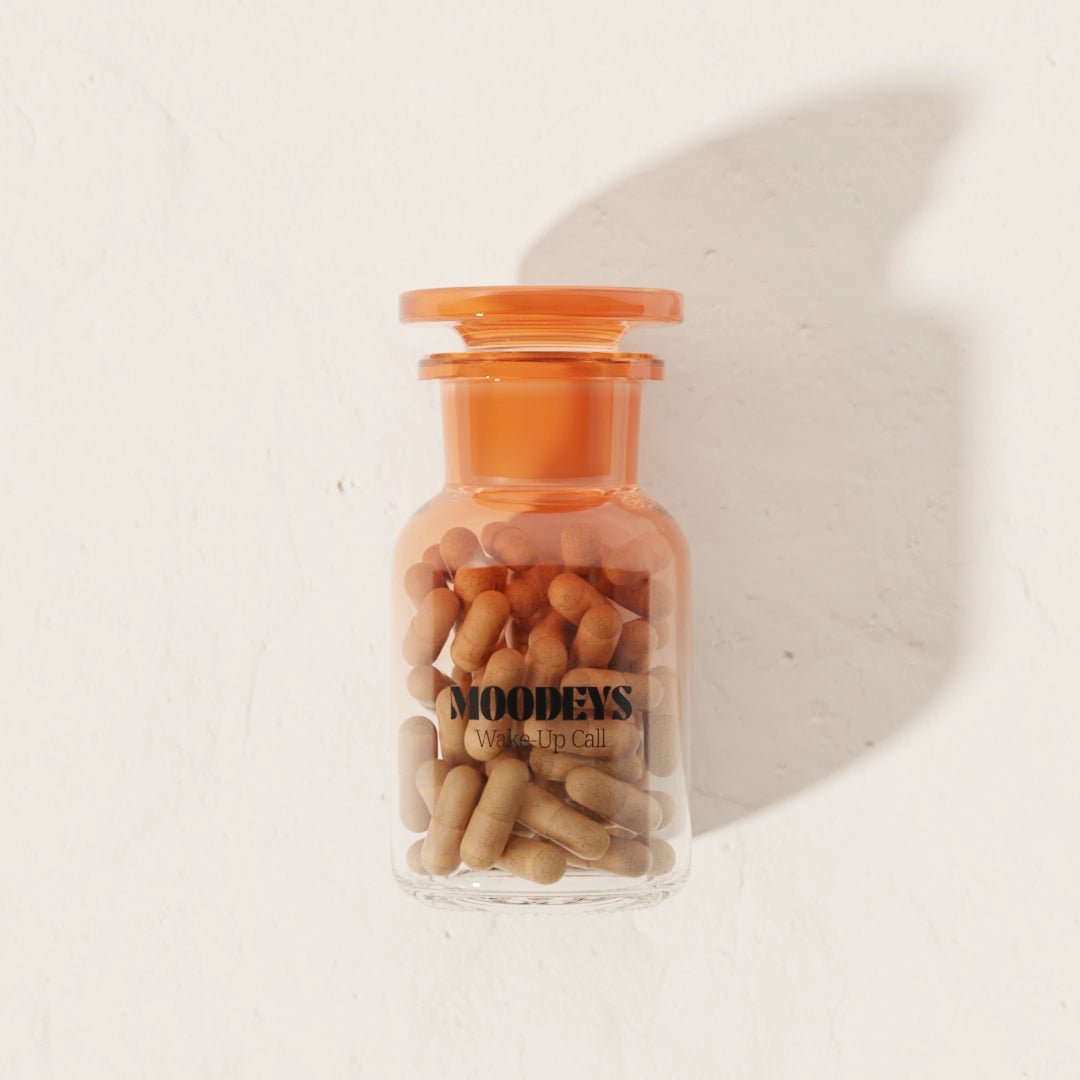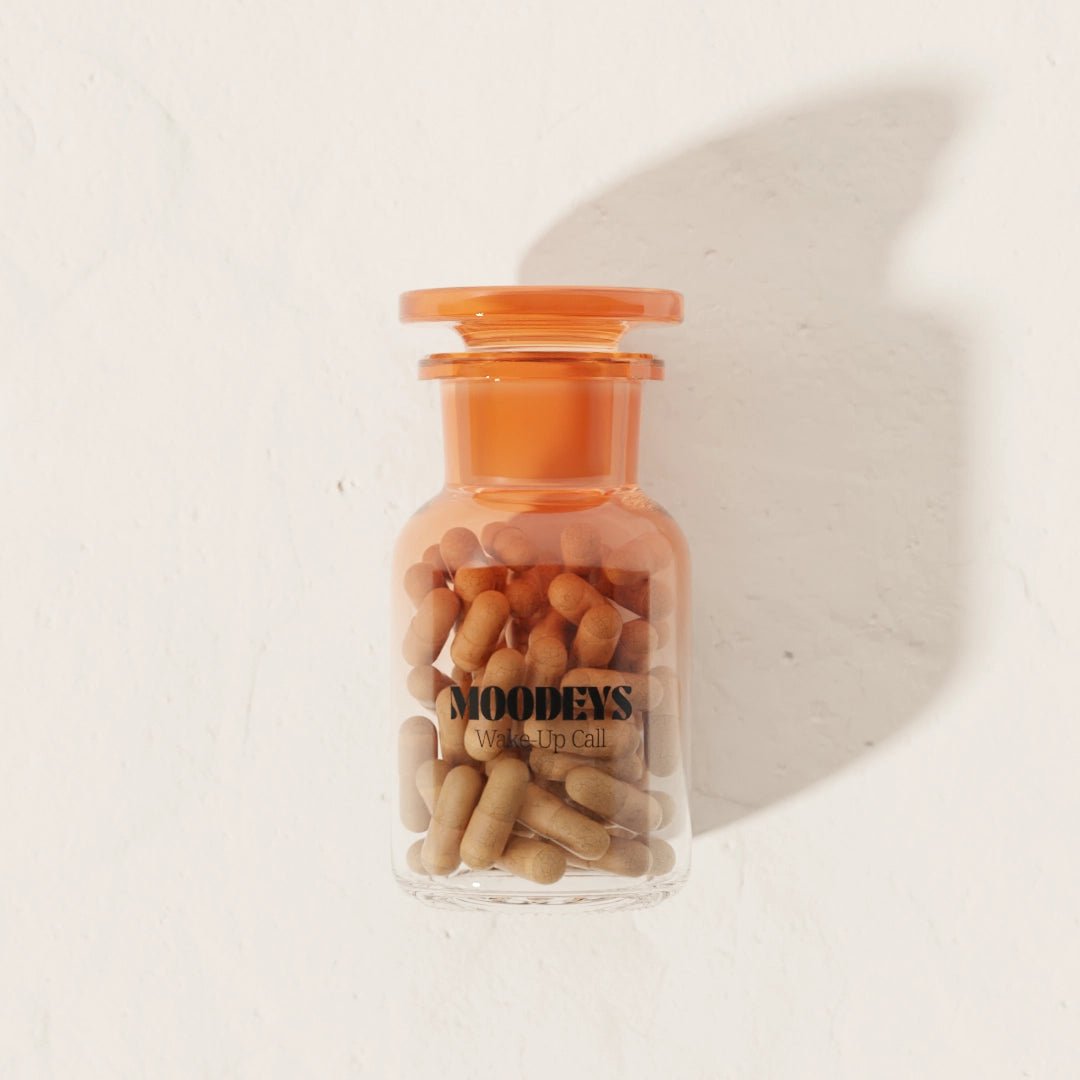
What is Lion’s Mane?
Lion’s mane (Hericium erinaceus) has been around for centuries; it can be traced back to the Tang Dynasty in China (618-907 AD). The fruiting body is called hóu tóu gū (“monkey head mushroom”) in Chinese and yamabushitake (“mountain monk mushroom”) in Japanese.
They can be found growing on old or dead broadleaf trees. But you can spot them easily as they are large white and shaggy fungi resembling a lion’s mane.
Health Benefits of Lion's Mane Mushrooms
Why do people take Lion’s Mane?
Lion’s mane mushrooms have been used for medicinal purposes for centuries. Today, we see lion’s mane more and more in the western world to support cognitive function and brain health. In studies, lion’s mane can help focus, increase productivity, improve your digestion and immune system.
Brain Health & Cognitive Function
Lion’s mane contains compounds called erinacines and hericenones. They help promote nerve growth factor (NGF) synthesis, which essentially stimulates the growth of brain cells. Lion’s mane effect of NGF may help prevent brain disorders such as Alzheimer's disease. Secondly, lion’s mane is a type of nootropic, meaning it contains compounds that improve brain health, cognitive function, memory and focus.
-
Digestive Health
Studies have suggested that lion’s mane mushroom can be beneficial for the digestive tract. They help prevent ulcers that can form anywhere along the digestive tract, including the stomach, small intestine and large intestine. The mushroom appears to have gastroprotective effect, alleviating conditions such as IBS and ulcerative colitis. This promotes overall gut health.
-
Immune System Support
Research in animals suggests that lion’s mane may strengthen the immune system. Through the use of taking lion’s mane, you may boost your immune system, which helps protect against bacteria, viruses, and other harmful substances. Which reduces inflammation and oxidative stress.
-
Relieves Depression & Anxiety
Lion’s mane mushroom helped improve mood and sleep disorders in a 2019 study. Within 8 weeks, the patients experienced a decrease in depression and anxiety symptoms, but also improved their sleep. Their blood samples had shown increases in pro-brain derived neurotrophic factor (proBDNF), a protein that plays an important role in mood and brain health.
How to incorporate Lion’s Mane into your daily route?
Cooking
Lion’s mane can be found in many forms, fresh, dried or as a powder. If you cook them fresh, many say they resemble seafood, so this is a great vegetarian alternative.
- Saute Lion’s Mane and add them to a stir fry or put them on toast
- Roast them in the oven as a vegetarian option
- Sear them into lion’s mane steaks
- Dice them up and add to a risotto
Lion’s Mane Supplements
You can try lion’s mane in supplement form. It’s best to use capsules because they are mess free and you know your exact dosage. We recommend incorporating Wake-Up Call or Happy Hour into your daily routine to help with focus, productivity, mood and overall well being.

Wake-Up Call




